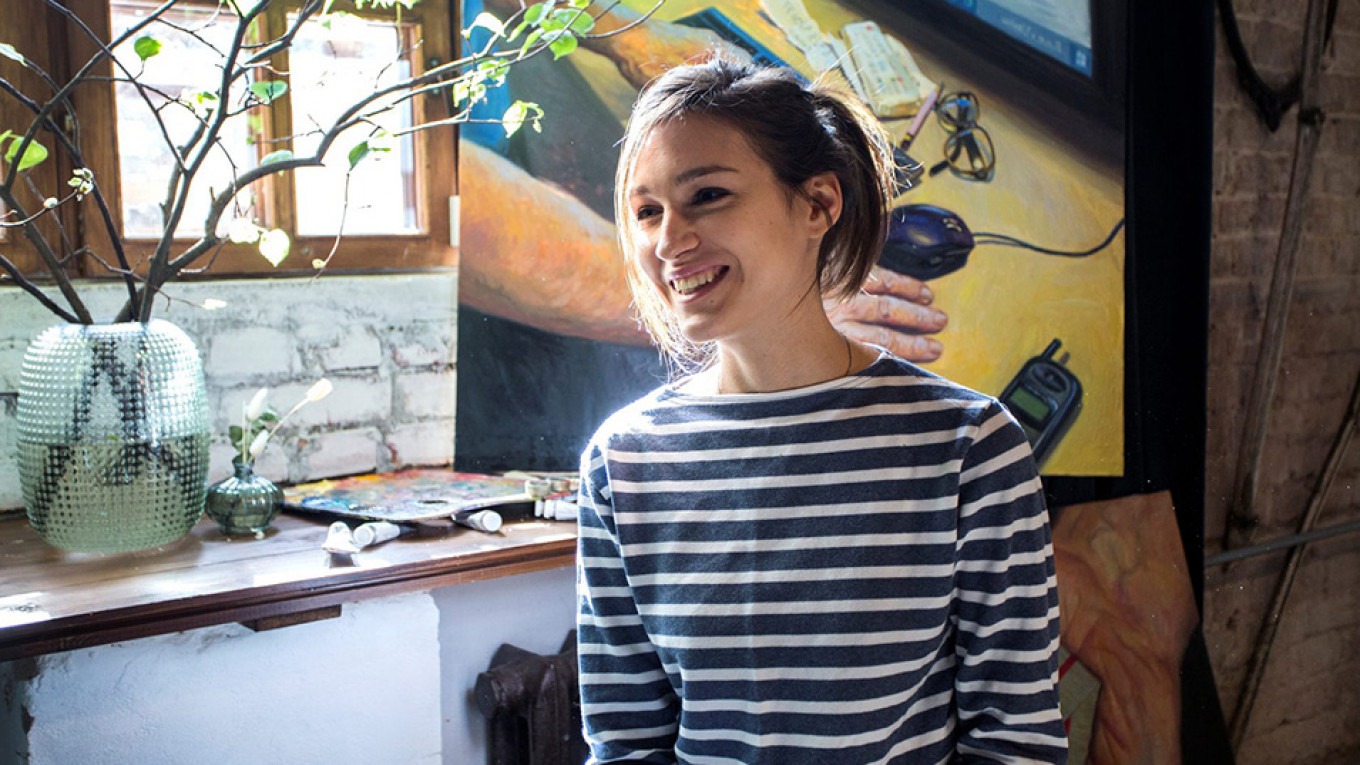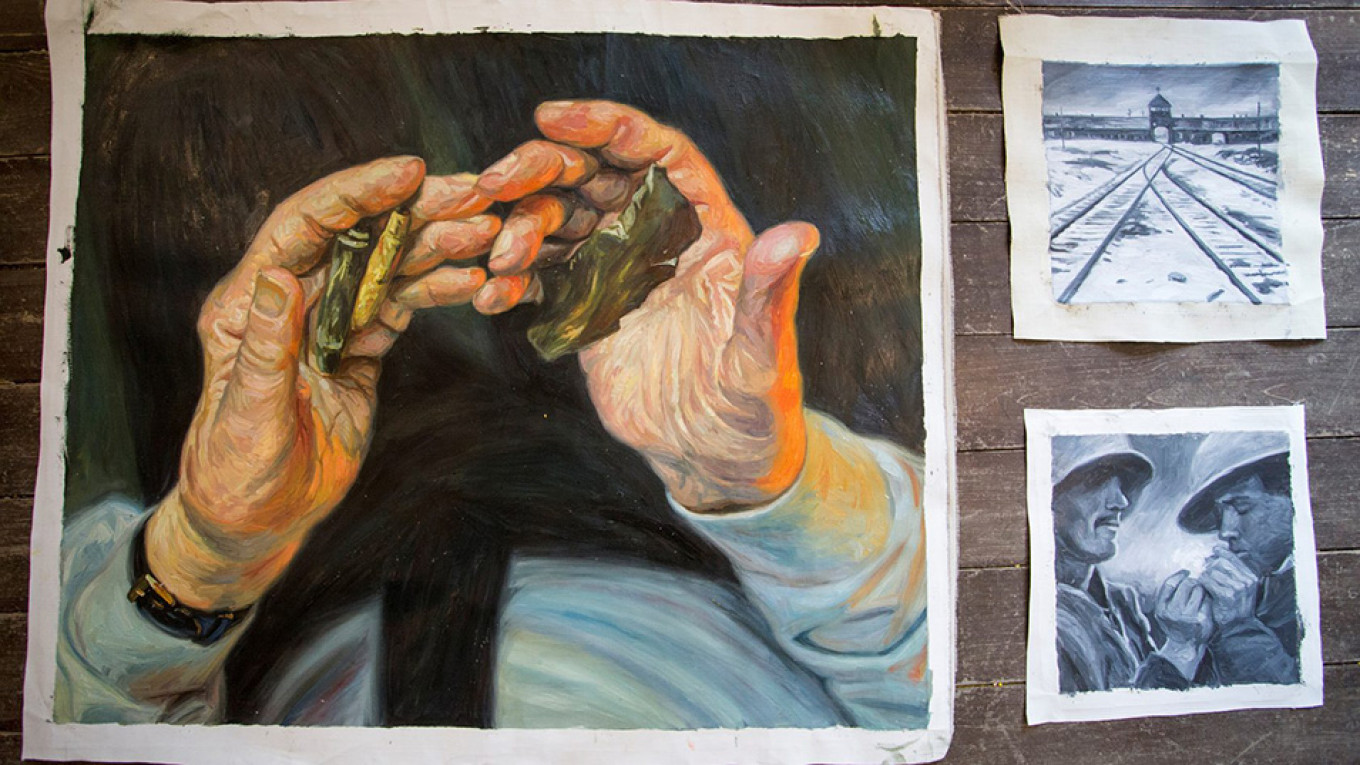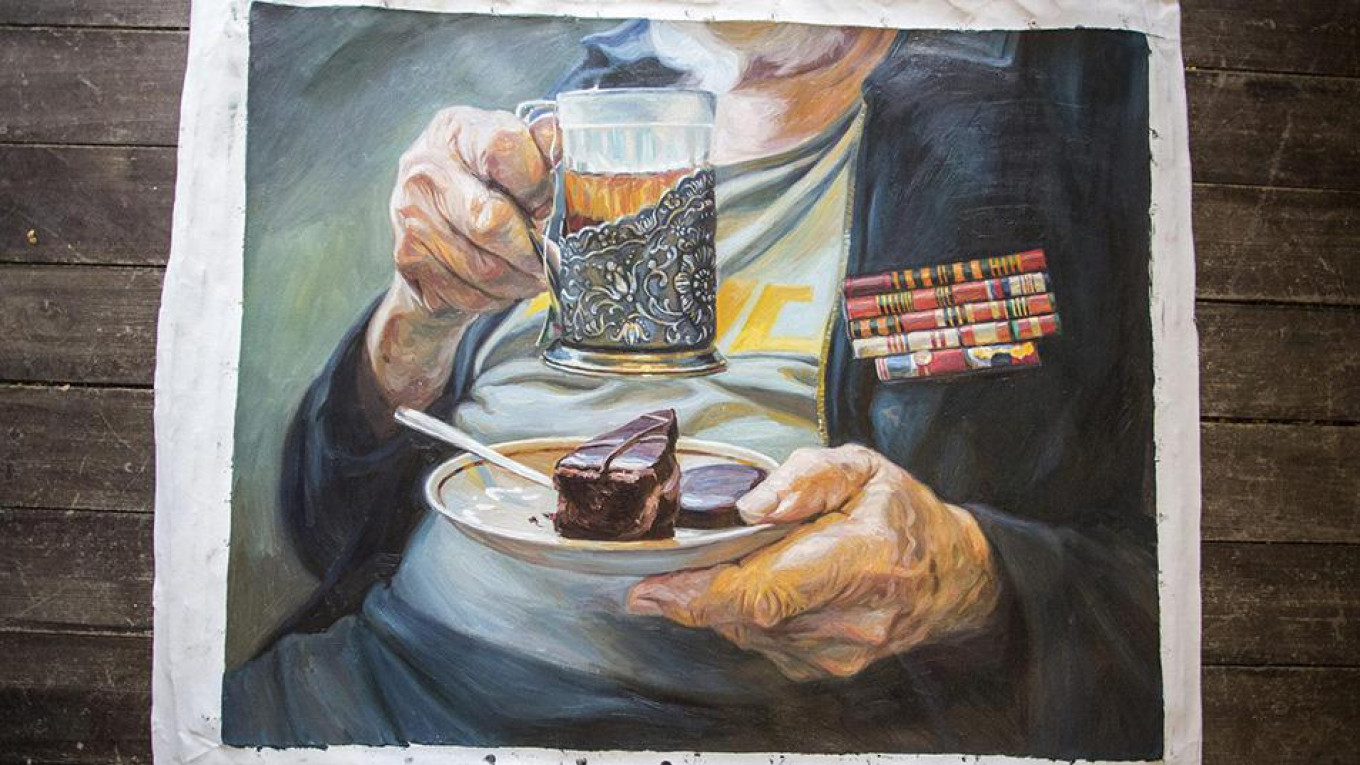On the eve of Russia’s Victory Day, an exhibition opened that is devoted to the daily lives of veterans. Entitled “364 Days,” it’s a project by up-and-coming contemporary artist Sasha Sokolova. She studied painting at the Sergei Andriyaka School from age nine and then graduated from Moscow’s prestigious state film school. Last year she was the only Russian artist chosen to take part in creating the animated film “Loving Vincent” about the life of the painter Vincent Van Gogh. The Moscow Times talked to Sasha Sokolova about “364 Days” and her works.
Why did you decide to do an art project devoted to veterans of the Great Patriotic War?
The idea of the project “364 Days” came to me a long time ago, after observing my grandad, Yury Oparin, who is a veteran. He’s also an artist, and he started teaching me to draw when I was just a little kid. So he played an enormous role in shaping me as an artist. It’s very important to my grandfather that we do not forget. Every year our whole family goes to Park Pobedy (Victory Park) on May 9. And for days before that the only thing my granddad is thinking of is putting on his nice jacket and going out in the park and feeling the gratitude from the people around him. And this got me thinking: Why do we only celebrate our veterans on just one day of the year? What do we know about their daily lives? So I decided to meet other veterans and talk to them. My granddad helped me with some contacts and the Council of Veterans helped with others. And that’s how the project started.
How old is your grandfather and the other veterans?
He is 92. He had to lie about his age to volunteer for the military service during the war. He was fifteen at the time and the official minimum age was sixteen. He’s one of the youngest veterans who actually took part in the war. Other veterans I worked with are a bit older — 93-95. And the oldest woman I painted was over 100 years old.

How do you make the portraits?
I talk to and record video of all the veterans. I make black and white paintings of their memories of the war, but I paint their portraits in color, focusing on their arms and eyes. During the meetings I take photos and make a few sketches, and then I paint in my studio. The veterans, of course, can’t sit for a painting for hours. I ask each of my subjects what their favorite pastime is, and that’s what I paint. My granddad loves desserts so I pictured him with his favorite cake and tea glass holder, which he has had since the 1950s when he studied at the Academy of Arts in St. Petersburg.
What was the most moving story you heard?
It was a story from Ivan Martynushkin, who was one of the first liberators of Auschwitz. In 1945 he commanded a company that fought for a village near Krakow. But he had no idea that there was a concentration camp nearby. In fact, he and his fellow soldiers didn’t even know such camps existed and happened upon it absolutely by accident. They saw a large fence with barbed wire in the field. Before Auschwitz, the soldiers saw enough death and hunger, but what they saw there shocked them. The prisoners did not speak any Russian, but Ivan saw gratitude and joy in their eyes.
Pop Up Museum at Neo Geo Business Center. 17 Ulitsa Butlerova. Metro Kaluzhskaya. The exhibition runs until June 8 and is open Tuesday through Sunday, 11 a.m. to 8 p.m. Call +7 985 774 2936 for an appointment. For more photos and information in Russian, see here.

A Message from The Moscow Times:
Dear readers,
We are facing unprecedented challenges. Russia's Prosecutor General's Office has designated The Moscow Times as an "undesirable" organization, criminalizing our work and putting our staff at risk of prosecution. This follows our earlier unjust labeling as a "foreign agent."
These actions are direct attempts to silence independent journalism in Russia. The authorities claim our work "discredits the decisions of the Russian leadership." We see things differently: we strive to provide accurate, unbiased reporting on Russia.
We, the journalists of The Moscow Times, refuse to be silenced. But to continue our work, we need your help.
Your support, no matter how small, makes a world of difference. If you can, please support us monthly starting from just $2. It's quick to set up, and every contribution makes a significant impact.
By supporting The Moscow Times, you're defending open, independent journalism in the face of repression. Thank you for standing with us.
Remind me later.






